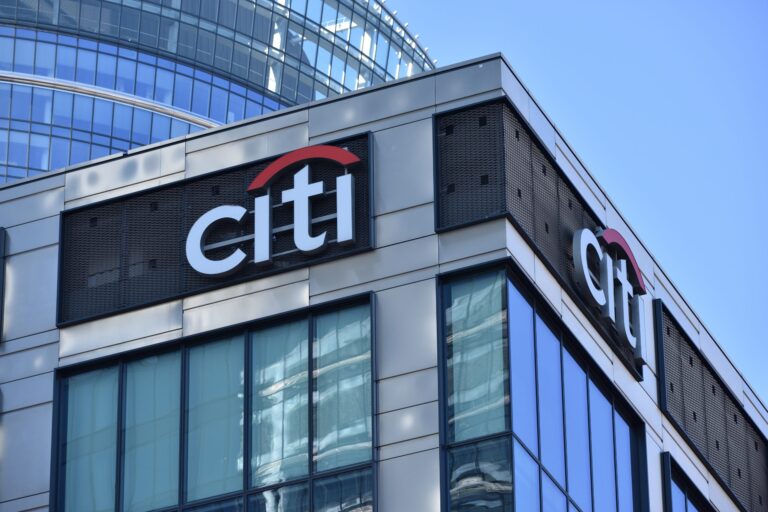Citi’s Global Head of International, recently visited Nigeria to underscore the growing strategic relevance of Africa in the evolving global trade environment. Cantú, who assumed his role in September 2023 following a major organizational restructuring at Citi, shared insights on how Nigeria and the wider African continent can capitalize on shifting trade patterns, digital innovation, and economic reforms.
Navigating Volatility, Seizing Opportunity
Global trade dynamics are undergoing seismic shifts, particularly due to increasing protectionism and supply chain realignments. According to Cantú, these disruptions—while creating uncertainty—are opening new pathways for growth. In regions like Africa, where intra-regional trade and digital infrastructure are steadily improving, agile businesses stand to benefit from these transitions.
Cantú emphasized Citi’s longstanding support for its clients, highlighting that the bank’s unmatched global network and local expertise enable it to guide businesses through periods of uncertainty. “We’ve supported our clients through changing tides for over two centuries, and we remain committed to transforming today’s volatility into tomorrow’s opportunity,” he said.
Enabling Intra-African Trade Through Global Services
Citi’s services division plays a critical role in accelerating trade within Africa. The bank’s robust footprint across the continent is designed to support seamless cross-border transactions. With operations in 12 sub-Saharan African countries and another 21 markets managed via hubs, Citi provides financing, risk solutions, and digital platforms to facilitate trade.
In Nigeria, local leadership and on-the-ground knowledge enable Citi to tailor solutions to market-specific challenges. “Being physically present and understanding the intricacies of each market sets us apart,” Cantú explained. “Our clients value that we’re not just global — we’re local too.”
The African Continental Free Trade Area (AfCFTA) has been hailed as a landmark initiative, but its impact has been modest so far. Cantú believes there is immense potential for AfCFTA to reshape Africa’s trade landscape if its implementation accelerates. Citi, he noted, is committed to powering this transformation by easing trade flows and financing expansion.
A Clearer Structure for a New Era
The restructuring led by Citi CEO Jane Fraser in 2023 has reshaped the bank’s global operations. A simplified structure and the removal of regional management layers have streamlined decision-making. Now, under Cantú’s leadership, Citi’s international operations — excluding North America — are centrally coordinated, giving regions like Africa direct strategic focus.
“This change ensures that Africa, the Middle East, Asia, and Latin America receive the same level of strategic attention,” Cantú noted. “The result is faster execution and deeper integration across our business units globally.”
Tackling FX Volatility and Economic Exposure
Citi is deploying advanced financial instruments to help clients manage foreign exchange risks and navigate Nigeria’s evolving economic reforms. Through liquidity management tools, FX hedging strategies, and tailored advisory services, Citi ensures clients can adapt to fluctuating currency markets.
Cantú praised the Nigerian Central Bank’s recent reforms, including its hands-off approach during global FX turbulence, which demonstrated resilience and boosted investor confidence. He emphasized the need for policy consistency and sustained reform to drive long-term stability.
While Nigeria’s economy is still influenced by oil prices, Cantú observed a growing diversification into sectors like agriculture, healthcare, and renewable energy. Citi is actively supporting clients in these sectors by structuring transactions, facilitating market access, and attracting global investment partners.
Focus Areas: Supply Chains, Trade Networks, and U.S. Capital Markets
Cantú identified two dominant trends shaping Citi’s global approach: evolving supply chains and the enduring strength of the U.S. economy. As companies adjust to trade realignments and tariff uncertainties, Citi is helping them tap into alternative markets — with Africa gaining prominence due to its emerging competitiveness.
He also emphasized that U.S. capital markets continue to lead in innovation, particularly in areas like artificial intelligence. Citi’s dual strength — deep domestic expertise and a global network — positions it uniquely to assist clients expanding into or from the U.S.
“Africa now finds itself in a strong position,” Cantú said. “Its lower exposure to traditional U.S. trade routes makes it more competitive under current global conditions. The African Free Trade Agreement only adds to that momentum.”
Nigeria at a Pivotal Moment
Reflecting on his meetings with Nigerian government officials and business leaders, Cantú expressed confidence in the country’s reform trajectory. He noted a palpable sense of determination to maintain momentum and implement long-term structural changes, despite short-term challenges.
“Nigeria is a priority market for us,” Cantú affirmed. “The consistency of our presence — from Jane Fraser’s visit last year to mine this year — shows our deep investment in Nigeria’s future.”
Enhancing Digital Infrastructure for Seamless Transactions
Citi processes nearly $5 trillion in financial flows daily across borders and currencies. In Nigeria and Africa, the bank continues to invest in digital payment and trade platforms to enhance operational efficiency and transaction speed.
Proprietary tools like CitiDirect, CitiConnect, and the Citi Electronic Trade Loans Platform provide clients with real-time treasury and trade capabilities. Innovations like digital signatures (via DocuSign) have dramatically reduced transaction processing times in Nigeria, shifting from weeks to minutes.
Citi is also engaging with fintech startups and digital players to improve e-commerce and cross-border payments across sub-Saharan Africa, working closely with regulators to develop sustainable and inclusive financial ecosystems.

